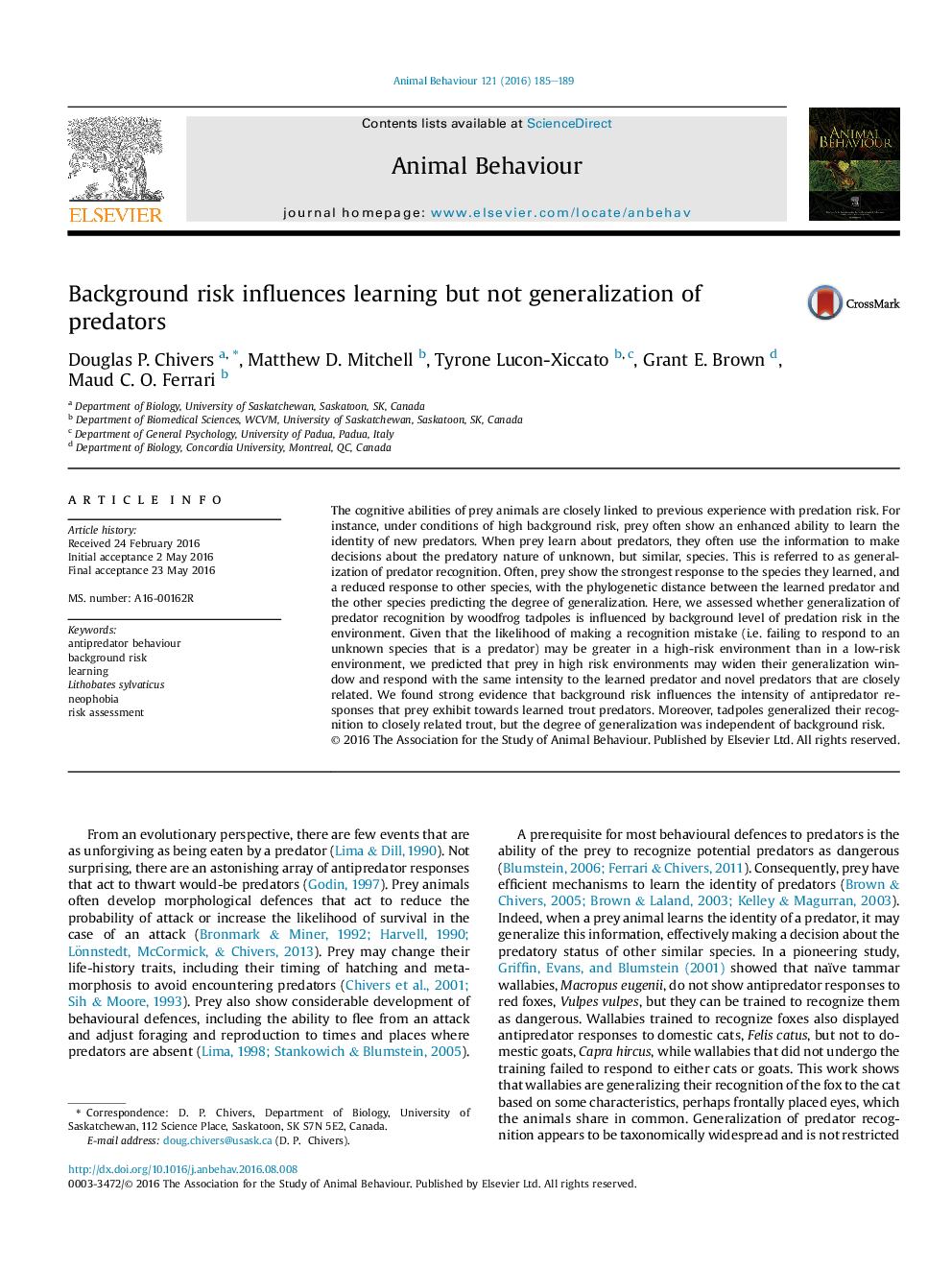| Article ID | Journal | Published Year | Pages | File Type |
|---|---|---|---|---|
| 8488898 | Animal Behaviour | 2016 | 5 Pages |
Abstract
The cognitive abilities of prey animals are closely linked to previous experience with predation risk. For instance, under conditions of high background risk, prey often show an enhanced ability to learn the identity of new predators. When prey learn about predators, they often use the information to make decisions about the predatory nature of unknown, but similar, species. This is referred to as generalization of predator recognition. Often, prey show the strongest response to the species they learned, and a reduced response to other species, with the phylogenetic distance between the learned predator and the other species predicting the degree of generalization. Here, we assessed whether generalization of predator recognition by woodfrog tadpoles is influenced by background level of predation risk in the environment. Given that the likelihood of making a recognition mistake (i.e. failing to respond to an unknown species that is a predator) may be greater in a high-risk environment than in a low-risk environment, we predicted that prey in high risk environments may widen their generalization window and respond with the same intensity to the learned predator and novel predators that are closely related. We found strong evidence that background risk influences the intensity of antipredator responses that prey exhibit towards learned trout predators. Moreover, tadpoles generalized their recognition to closely related trout, but the degree of generalization was independent of background risk.
Related Topics
Life Sciences
Agricultural and Biological Sciences
Animal Science and Zoology
Authors
Douglas P. Chivers, Matthew D. Mitchell, Tyrone Lucon-Xiccato, Grant E. Brown, Maud C.O. Ferrari,
